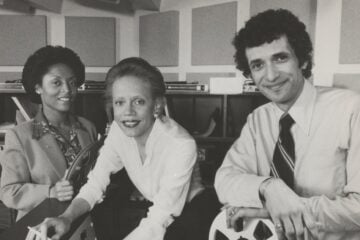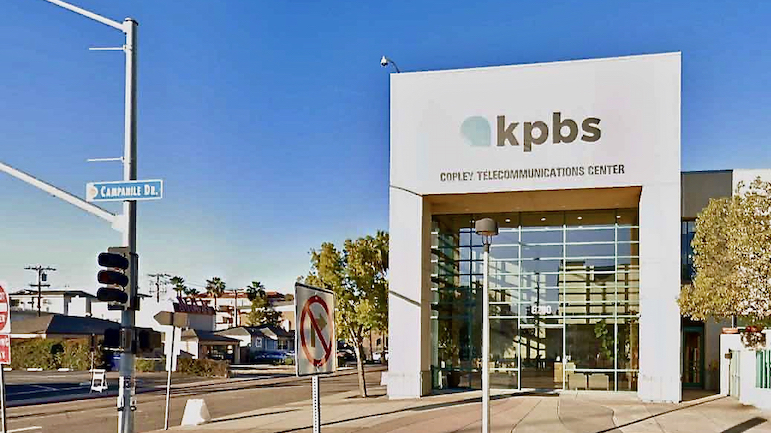Sponsor churn, ebb in digital cut into NPR’s bottom line
With one of its biggest corporate sponsors pulling back from a multiyear underwriting commitment, NPR has an uphill climb to rebuild its sponsorship revenues from 2011, when the network’s sales reps reeled in enough deals to set a new earnings record.
High turnover — or “churn” — among its corporate clients, and the pullback of companies that spend the most money on advertising, cut into NPR’s bottom line in the fiscal year that just closed. After netting $2.4 million in profits in 2011, largely on robust sponsorship sales, the network aimed high for 2012. But sales fell far short of projections.
For fiscal year 2012, which ended on Sept. 30, corporate sponsorship was down $8.6 million from goal. NPR posted an operating deficit of $6.2 million for the year.
The drop in corporate sponsorships had been expected, with discussions earlier in the year (Current, May 14, and Sept. 24) warning that NPR would end the year with an operating deficit.
The NPR board’s resource development committee discussed the financial results during meetings in Washington, D.C., this month.
“We had a very aggressive goal for 2012,” said Stephen Moss, NPR’s chief sales rep at National Public Media, in an interview. “Looking at the performance of the previous two years, we felt like there was a lot of momentum there. And, while we did see some positive signs in 2012, we also saw some pullback in certain areas.” Underwriting sales had been strong in both of the previous two fiscal years, Moss said, and NPR budgeted for continued growth in 2012 that didn’t materialize.
One of the pullbacks pinching NPR is the close of its three-year contract with Ally Bank, one of its biggest underwriting clients, as the sole sponsor of Planet Money. The underwriting deal drew criticism in 2009 because of the sponsor’s interest in the subject that Planet Money covers — financial and business news. Representatives of Ally said their decision to end the contract boiled down to a shift in their marketing strategy.
“We regularly review our marketing and advertising initiatives, and make adjustments accordingly,” Ally spokeswoman Jessica Howell said. “We were pleased to be the inaugural sponsor for NPR’s Planet Money and maintain that partnership for three years; however, we are exploring other marketing opportunities for 2013.”
Moss declined to comment on the end of the underwriting deal, but said that NPM sees plenty of potential to find new sponsors for Planet Money. The uniquely branded multiplatform reporting series “lends itself to a multi-sponsor approach,” he said. “Three years ago maybe not as much. But now, with the growth of the show, it might.” Still, he said, “We wouldn’t rule out a single-sponsor opportunity.”
The loss of Ally Bank highlights the challenge NPM faces in the underwriting market: frequent turnover amongst its sponsors. NPM had 256 clients onboard in fiscal 2012, but the churn rate of 45 percent was higher than average. Turnover among sponsors typically ranges from 35 to 43 percent, Moss said, and sales reps receive bonuses for bringing in new clients.
“We’re good at bringing new people in, but the churn rate is a little higher than it should be and we’re looking at that,” Moss said.
NPR did see some positive growth for the year, especially in fundraising. The development staff surpassed its fundraising goals by 5 percent in 2012, bringing in a total of $31.2 million. Individual gift receipts of $10.3 million were up 18 percent from 2011.
For fiscal year 2013, NPM is forecasting sponsorship revenues of $47.8 million, with some 82 percent, or $39 million, in radio spot sales. Digital sponsorship sales will bring in the balance.
Downward pressure on digital ads
The potential for growth in digital ad revenues is limited, Moss told NPR board members Nov. 8, because of increased competition and downward pressure on the prices of online ads.
“I wouldn’t say we’re at the point of flatlining,” Moss said during the meeting. “But we’re at a point of slower growth.”
John Herrmann, vice chair of the resource development committee, said the slowdown in digital ad sales was worrisome considering the investments that NPR and stations are making in online operations. “If there’s no return, why do it?” Herrmann asked.
Building digital capacity is an important strategic investment for NPR and its stations as news organizations, said President Gary Knell. “Digital is now running through the DNA of everything,” Knell said.
Digital sponsorships play an important role in building NPM’s overall sales, Moss said, because many companies pair on-air spots with digital ads. He estimated that up to 10 percent of radio revenue would be lost if sales reps couldn’t package on-air and online placements together. NPR derives up to 75 percent of its digital revenues from sales of banner display ads, 10 percent from podcasts and 15 percent from mobile.
To boost digital revenues, Moss said, NPR and NPM need to pursue innovative approaches to digital marketing. He pointed to an Election Day campaign for Jeep that ran on NPR.org and its mobile platforms. It brought in $55,000 in one day alone.
“We have not peaked yet, but if we stand still we will,” Moss told the board.








